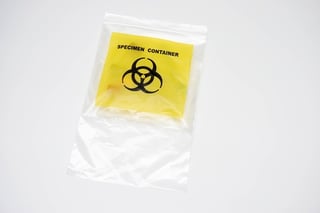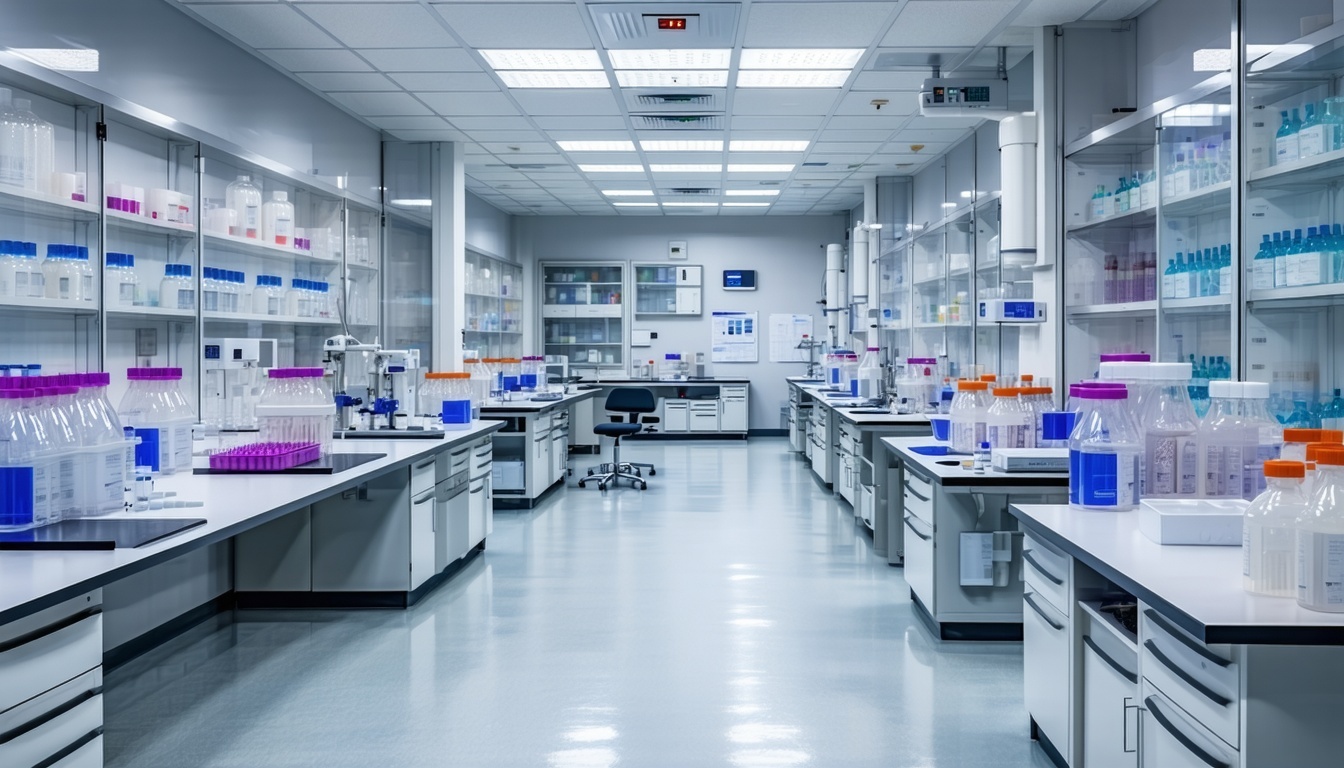Share this
preservation of biological specimens: protocols, best practices, and opportunities for improvement
by Neoteryx Microsampling on Apr 12, 2017 7:57:00 AM
 Biological specimens like blood, saliva, and tissue play a crucial role in diagnostics, research, and disease surveillance. To ensure the quality and reliability of these samples, it is important to follow strict protocols for their preservation. Proper storage and handling are essential to prevent degradation, contamination, or compromised results.
Biological specimens like blood, saliva, and tissue play a crucial role in diagnostics, research, and disease surveillance. To ensure the quality and reliability of these samples, it is important to follow strict protocols for their preservation. Proper storage and handling are essential to prevent degradation, contamination, or compromised results.
- Human physiology before the biospecimen collection - Biospecimen quality may be affected by overall health and the medication status of the patient/research participant, food and beverages consumed, as well as circadian rhythms.
As a golden rule of best practices, pre-analytical variables must be notated for reference if they cannot be controlled; information about these factors should be collected and recorded to decrease the variability between samples.
- Collection practices - Preservation of the biospecimen as quickly as possible after removal from the patient is one of the key best practices during sample collection.
It is also vital to annotate each specimen with the conditions of biospecimen collection, processing, and storage, according to Biospecimen Reporting for Improved Study Quality (BRISQ) or a similar collection of recommendations.
- Handling practices before downstream testing - Best practices also dictate optimization of biospecimen handling to minimize molecular changes that may result from the processing activities.
Most critical factors in this stage include cold ischemia time (the time between biospecimen removal from the patient and its placing into fixative), temperature and timing of bioprocessing, the size and volume of the sample, as well as freeze-thaw cycles.
Protocols for Biological Specimen Preservation

When it comes to storing and handling biological specimens, protocols can vary based on the type of sample and the intended analysis. However, several core principles apply to most sample types:
- Timely Processing: Delays in processing can lead to the breakdown of nucleic acids and proteins, rendering samples unusable for further analysis.
- Appropriate Temperature Control: Depending on the analyte of interest, specimens should be stored at room temperature, refrigerated (2°C–8°C), frozen (-20°C to -80°C), or cryopreserved in liquid nitrogen (-196°C).
- Use of Preservatives: Chemical preservatives or stabilizers may be added to the sample at the time of collection to inhibit enzymatic degradation and microbial growth.
- Minimal Freeze-Thaw Cycles: Repeated freezing and thawing can damage sensitive biomolecules. Samples should be aliquoted to avoid unnecessary thawing.
Best Practices for Biological Specimen Storage and Handling
To maintain the integrity of biological samples, several best practices must be followed, in addition to strict temperature regulation and time-sensitive handling:
- Labeling and Tracking: Each specimen should be clearly labeled and linked to its corresponding metadata, which includes the subject ID, date and time of collection, and the method of collection.
- Secure Storage: Specimens must be stored in appropriate containers, such as cryovials or sealed plastic tubes, and kept in properly monitored storage units. This helps prevent exposure to fluctuating environmental conditions.
- Routine Equipment Calibration: Freezers and refrigerators used for specimen storage should be regularly calibrated and monitored to ensure consistent operation.
- Sample Transport Compliance: When transporting biological specimens, the packaging and labeling must adhere to local and international regulatory requirements, especially for samples classified as infectious.
Additionally, laboratories can implement inventory management software to track specimen usage and location, which helps minimize the risk of loss or mishandling.
How Can Institutions Improve?

To aid with advancements in best practices related to biospecimens, programs such as the NCI’s Biospecimen Research Network and the Standardization and improvement of generic pre-analytical tools and procedures for In-vitro Diagnostics (SPIDIA) in EU are conducting original research to identify and address the major questions of biospecimen methodology before biospecimen testing.
According to these findings, organizations should establish sample lifecycle management strategies that dictate how samples are collected, transported, processed, stored, documented and even archived for future use.
Advances in medical science are most often derived from properly preserved biological samples and the clinical data linked to them. Preservation of biological specimens throughout their sample cycle is thus at the forefront of medical research.
Learn more about microsampling to collect blood samples and other biological specimens for research and healthcare here:
Additionally, laboratories can implement inventory management software to track specimen usage and location, which helps minimize the risk of loss or mishandling.
Improving Specimen Integrity with Microsampling Techniques

Microsampling methods, such as Volumetric Absorptive Microsampling (VAMS®), are becoming increasingly popular due to their simplified logistics and excellent preservation characteristics. These devices collect small, fixed volumes of blood that dry quickly and can be shipped and stored at room temperature.
Dried blood microsamples greatly reduce the risks associated with improper freezing or temperature fluctuations during transport. As a result, they are ideal for remote studies, global research collaborations, and field-based diagnostics.
When used correctly, microsampling can maintain and even enhance the standards of biological specimen storage and handling. Given that new studies continue to validate the effectiveness of dried sample formats, more laboratories are incorporating these tools into their workflows.
Final Thoughts
Maintaining the quality of biological specimens is crucial for producing accurate scientific and clinical data. By following established protocols for the preservation of biological specimens and adopting best practices for their storage and handling, researchers and healthcare professionals can minimize variability and ensure reliable test results.
Modern techniques, such as microsampling, are improving the accessibility and effectiveness of specimen management in both centralized laboratories and decentralized settings. With a continued emphasis on quality and consistency, the future of specimen preservation appears to be increasingly efficient and sustainable.

Image Credits: Shutterstock, Trajan, Neoteryx
Share this
- Microsampling (206)
- Research, Remote Research (119)
- Venipuncture Alternative (105)
- Clinical Trials, Clinical Research (83)
- Mitra® Device (73)
- Therapeutic Drug Monitoring, TDM (51)
- Dried Blood Spot, DBS (39)
- Biomonitoring, Health, Wellness (30)
- Infectious Disease, Vaccines, COVID-19 (24)
- Blood Microsampling, Serology (23)
- Omics, Multi-Omics (21)
- Decentralized Clinical Trial (DCT) (20)
- Specimen Collection (18)
- Toxicology, Doping, Drug/Alcohol Monitoring, PEth (17)
- Skin Microsampling, Microbiopsy (14)
- hemaPEN® Device (13)
- Preclinical Research, Animal Studies (12)
- Pharmaceuticals, Drug Development (9)
- Harpera Device (7)
- Industry News, Microsampling News (5)
- Antibodies, MAbs (3)
- Company Press Release, Product Press Release (3)
- Environmental Toxins, Exposures (1)
- July 2025 (1)
- May 2025 (1)
- April 2025 (2)
- December 2024 (2)
- November 2024 (1)
- October 2024 (3)
- September 2024 (1)
- June 2024 (1)
- May 2024 (1)
- April 2024 (4)
- March 2024 (1)
- February 2024 (2)
- January 2024 (4)
- December 2023 (3)
- November 2023 (3)
- October 2023 (3)
- September 2023 (3)
- July 2023 (3)
- June 2023 (2)
- April 2023 (2)
- March 2023 (2)
- February 2023 (2)
- January 2023 (3)
- December 2022 (2)
- November 2022 (3)
- October 2022 (4)
- September 2022 (3)
- August 2022 (5)
- July 2022 (2)
- June 2022 (2)
- May 2022 (4)
- April 2022 (3)
- March 2022 (3)
- February 2022 (4)
- January 2022 (5)
- December 2021 (3)
- November 2021 (5)
- October 2021 (3)
- September 2021 (3)
- August 2021 (4)
- July 2021 (4)
- June 2021 (4)
- May 2021 (4)
- April 2021 (3)
- March 2021 (5)
- February 2021 (4)
- January 2021 (4)
- December 2020 (3)
- November 2020 (5)
- October 2020 (4)
- September 2020 (3)
- August 2020 (3)
- July 2020 (6)
- June 2020 (4)
- May 2020 (4)
- April 2020 (3)
- March 2020 (6)
- February 2020 (3)
- January 2020 (4)
- December 2019 (5)
- November 2019 (4)
- October 2019 (2)
- September 2019 (4)
- August 2019 (4)
- July 2019 (3)
- June 2019 (7)
- May 2019 (6)
- April 2019 (5)
- March 2019 (6)
- February 2019 (5)
- January 2019 (8)
- December 2018 (3)
- November 2018 (4)
- October 2018 (7)
- September 2018 (6)
- August 2018 (5)
- July 2018 (8)
- June 2018 (6)
- May 2018 (5)
- April 2018 (6)
- March 2018 (4)
- February 2018 (6)
- January 2018 (4)
- December 2017 (2)
- November 2017 (3)
- October 2017 (2)
- September 2017 (4)
- August 2017 (2)
- July 2017 (4)
- June 2017 (5)
- May 2017 (6)
- April 2017 (6)
- March 2017 (5)
- February 2017 (4)
- January 2017 (1)
- July 2016 (3)
- May 2016 (1)
- April 2016 (2)



No Comments Yet
Let us know what you think